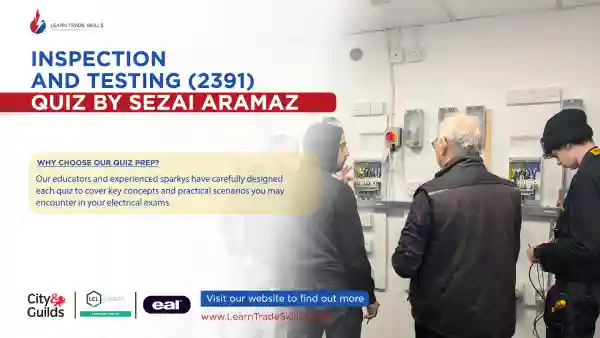

The electrical industry is one of the most dynamic, essential, and in-demand sectors in the UK. With the rising emphasis on renewable energy, electric vehicle (EV) infrastructure, and the growing housing market, the demand for qualified electricians has never been higher. For anyone considering a career in this field, the question often arises: What electrical qualifications do I need to become an electrician?
The path to becoming a qualified electrician isn’t always linear. It can vary based on your starting point, career goals, and the type of electrical work you wish to pursue. Some may follow a structured route from the ground up, while others may seek to formalize years of industry experience. Regardless of the path, having the right qualifications opens the door to better job opportunities, higher salaries, and the ability to work independently or even start your own business.
In this comprehensive guide, we’ll explore the main qualification routes, industry insights, and address frequently asked questions about electrical qualifications. Our goal is to provide clarity and help you choose the best path for your career.
Becoming an electrician requires a blend of theoretical knowledge and practical skills. The path to qualification varies based on your starting point, from those with no experience to seasoned workers formalizing their experience. Here are the key routes available:
This is the most comprehensive route and is ideal for those with little to no prior experience. It provides a clear, step-by-step pathway to becoming a fully qualified electrician.
Key Qualifications:
Who is it for?
Study Format:
If you’re looking to work solely on residential properties, the domestic installer route is a fast-track option. This pathway allows you to become certified for household electrical work.
Key Qualifications:
Who is it for?
Study Format:
This pathway is designed for experienced electricians with at least five years of on-the-job experience but without formal qualifications.
Key Qualifications:
Who is it for?
Study Format:
Electricians remain one of the most sought-after trades in the UK. With government initiatives focused on renewable energy, such as EV charging infrastructure, the demand is set to rise significantly.
According to Indeed, the average salary for a fully qualified electrician in the UK is around £34,000 – £38,000 annually, with the potential to earn more in specialist roles like inspection and testing.
Technically, yes. You can work as a domestic installer without an NVQ, but to become a fully qualified electrician, especially for commercial or industrial work, you’ll need an NVQ Level 3.
A Level 2 qualification allows you to work as an electrical mate or assistant, but it’s not enough to qualify you as a full electrician. Employers generally require Level 3 and NVQ certification.
No, the AM2 is part of the NVQ Level 3 qualification. You’ll need to be registered for an NVQ before taking the AM2 assessment.
Yes, demand for electricians in the UK is at an all-time high. Data from the UK’s Office for National Statistics (ONS) indicates strong growth in construction, renewable energy, and electric vehicle (EV) infrastructure, all of which require skilled electricians. The National Careers Service also highlights an expected increase in job openings for electricians through 2026.
An Approved Electrician holds advanced qualifications and often takes on supervisory roles. Key differences include:
There is no official “Level 7” qualification for electricians. However, in higher education, Level 7 refers to postgraduate study, such as a master’s degree. For electricians, the highest standard is typically NVQ Level 3, with optional endorsements like inspection and testing qualifications.
Becoming a qualified electrician is a multi-step process with several pathways available depending on your experience and career goals. From domestic installer certification to full NVQ Level 3 qualification, each route serves a different purpose. While some roles do not require an NVQ, achieving full status as a qualified electrician offers higher earning potential and access to a wider range of work. Given the strong demand for electricians, there’s never been a better time to pursue this career path.
Sezai Aramaz is the esteemed founder of Learn Trade Skills, boasting over 40 years of experience in the electrical industry in the UK. With two decades dedicated to educating future electricians, he served as an Electrical Installation Lecturer and Assessor. Aramaz's expertise and commitment have contributed significantly to the growth and proficiency of aspiring tradespeople in the field.



© Copyright Learn Trade Skills 2025
“Lorem ipsum dolor sit amet, consectetur adipiscing elit. Ut pretium tristique purus nec consectetur. Nulla feugiat eget tellus aliquam scelerisque. Sed eget luctus enim, sed mattis enim. Lorem ipsum dolor sit amet, consectetur adipiscing elit. Ut pretium tristique purus nec consectetur. Nulla feugiat eget tellus aliquam scelerisque. Sed eget luctus enim, sed mattis enim.Nulla feugiat eget tellus aliquam scelerisque. Sed eget luctus enim, sed mattis enim. Lorem ipsum dolor sit amet, consectetur adipiscing elit. Ut pretium tristique purus nec consectetur. Nulla feugiat eget tellus aliquam scelerisque. Sed eget luctus enim, sed mattis enim.”
William Goss
Electrician course
11/11/2024